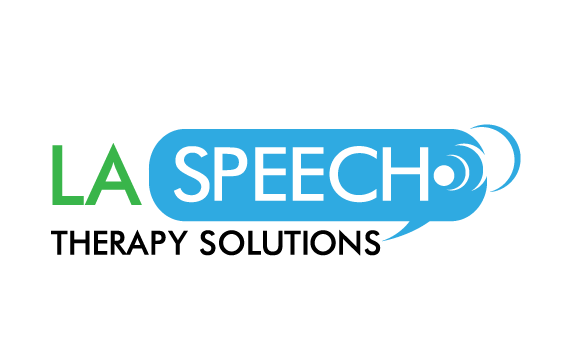
Speech pathologist jobs Los Angeles, also known as speech therapists, have a multifaceted and impactful role in the lives of individuals facing communication and swallowing disorders.
Speech therapy, also known as speech-language pathology, is a profession dedicated to helping people overcome communication and swallowing disorders. If you have ever wondered what the day and life of a speech therapist are like, read on to gain insight into this rewarding and impactful profession.
Education and Training:
A substantial amount of education and training is necessary to become a speech therapist. A master’s degree in speech-language pathology, which covers courses in anatomy, speech development, and communication problems, is normally required for speech therapists. Before they are granted licenses to practice, students also go through supervised clinical practice to obtain practical experience.
Diverse Work Settings:
Speech therapists work in a variety of settings, including schools, hospitals, rehabilitation centers, private practices, and research institutions. The kind of patients they work with and their daily routine may change depending on the setting.
Typical Day in the Life:
1. Assessment and Evaluation:
Speech therapists begin their day by assessing new patients. In order to diagnose speech and language impairments, they perform comprehensive evaluations that take into account articulation, fluency, voice quality, and language understanding.
2. Treatment Planning:
Once a diagnosis is made, speech therapists develop personalized treatment plans tailored to each patient’s needs. Plans like this frequently incorporate activities, therapies, and exercises meant to enhance speech and language abilities.
3. Therapy Sessions:
Conducting therapy sessions takes up a large amount of a speech therapist’s workday. Group or one-on-one sessions may be used, based on the patients’ needs. To assist patients in becoming better communicators, therapists employ a variety of strategies and resources.
4. Collaboration and Communication:
Teachers, families, and other medical professionals work closely with speech therapists. To guarantee that their patients receive assistance and care throughout time, they offer insightful analysis, progress reports, and recommendations.
5. Research and Continuing Education:
It’s critical for speech therapists to stay current on the most recent findings and therapeutic approaches. To improve their knowledge and abilities, they set aside time for reading research articles, attending workshops, and engaging in continuous education.
6. Administrative Tasks:
In addition to clinical work, speech therapists handle administrative tasks such as maintaining patient records, scheduling appointments, and billing. For their profession or the facility they work in to run well, these tasks are necessary.
Challenges and Rewards:
While speech therapist jobs Los Angeles can be challenging, it is incredibly rewarding. One of the most rewarding components of our work is seeing patients improve their quality of life, regain their confidence, and advance in their communication skills. Speech therapists and their patients frequently form close bonds, commemorating each accomplishment made together.
Are Speech Therapists and Speech Pathologists the Same?
Because “speech pathologist” and “speech therapist” are sometimes used synonymously, it might be unclear whether the two titles describe the same profession or whether there are minor distinctions between them. Actually, both phrases refer to the same specialists in the diagnosis and treatment of swallowing and communication difficulties. There are subtle differences between these titles, though.
1. Professional Background:
The professionals’ backgrounds are the main point of differentiation. Speech-language pathologists, often known as speech therapists or SLPs, are highly educated professionals who hold a master’s degree or higher in the field of speech-language pathology. They receive extensive training, learning about anatomy, therapy approaches, and a variety of communication impairments. They have the information and abilities necessary to evaluate, identify, and manage a variety of speech and language impairments thanks to their comprehensive schooling.
2. Practice Scope:
Speech pathologists and speech therapists work with a variety of clients, such as young children with developmental speech delays, persons with language impairments, stroke survivors, people recovering from brain injuries, and even patients who have trouble eating. Because of their experience, they can help with problems with voice, articulation, fluency, language understanding, and swallowing function.
3. Clinical Experience:
During their schooling, speech therapists participate in supervised clinical practice to obtain real-world experience. In order to refine their therapeutic and diagnostic skills and make sure they are equipped to interact with patients in an efficient manner, this practical training is essential.
4. Licensing and Certification:
Individuals must hold a license from the regulatory bodies in their home nations or states in order to work as speech therapists or speech pathologists. Normally, getting a license requires passing a licensing exam, finishing the necessary coursework, and accruing supervised clinical hours. Through this procedure, speech therapists are guaranteed to uphold the requisite levels of professionalism and competence.
Why Did You Become a Speech Therapist?
Choosing to become a speech therapist is an extremely intimate and significant decision that is frequently motivated by a love of helping people and an interest in the subtleties of communication. People that pursue this line of work do so for a variety of reasons, each of which reflects their particular combination of skills, empathy, and commitment to improving the lives of others.
1. Passion for Communication:
Many individuals are inherently passionate about the power of communication. They take great pleasure in fostering relationships and assisting people in properly expressing themselves. Their desire to work with people who struggle to express their needs, wants, and views motivates them to pursue a career in speech therapy.
2. Desire to Make a Difference:
Speech therapists have a profound impact on their patients’ lives. Speech therapists make a substantial contribution to improving the quality of life for their patients, whether they are supporting a person who stutters, helping a kid overcome a speech impediment, or helping a stroke survivor regain their capacity to talk. Many people who are interested in this career do so because they have a strong desire to change the world in a meaningful way.
3. Fascination with Language Development:
Understanding the complexities of language and its development is a fascination for some individuals. In an effort to solve the puzzles surrounding language learning and expression, speech therapists explore the nuances of phonetics, syntax, and semantics. Their professional interest in speech-language pathology stems from this intellectual curiosity.
4. Love for Teaching and Helping Others:
Speech therapists often work in educational settings, helping children develop essential communication skills. A rewarding way to combine a love of learning and the desire to assist others in overcoming communication difficulties is to pursue a career in speech therapy as a speech therapist. This is especially true for individuals who have a strong teaching and caring background.
5. Personal Experience:
Those who have firsthand experience with communication issues in their families or among close friends may find inspiration to pursue a career in speech therapy. Having direct experience with the life-changing effects of speech therapy can foster a deep feeling of empathy and inspire people to pursue this career path because they want to help and support others in the same way.
6. Interdisciplinary Interest:
The subject of speech therapy is multidisciplinary and has connections to linguistics, psychology, and medicine. Speech-language pathology appeals to those with a wide range of interests because it offers a comprehensive approach to treating communication issues by integrating many disciplines.
Join Us at LA Speech Therapy Solutions: Transform Lives One Word at a Time!
Are you a passionate and dedicated speech pathologist looking to make a difference in the vibrant city of Los Angeles? Look no further than LA Speech Therapy Solutions, where we offer an exciting opportunity to contribute to the lives of individuals seeking speech and language support.
If you are ready to embark on a fulfilling career journey and contribute to our mission of improving lives through effective communication, we invite you to apply for one of our speech pathologist jobs Los Angeles. Visit our website or contact us directly to learn more about our current job openings and application process.





